
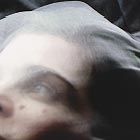



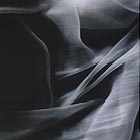
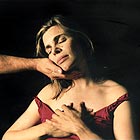
JYTTE REX
FLODEN – THE RIVER
12 May – 17 June 2007
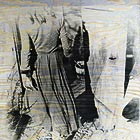
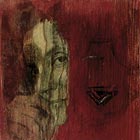
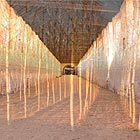
The exhibition
JYTTE REX
FLODEN – THE RIVER
Photography and Film
12 May – 17 June 2007
bildkultur | galerie Stuttgart
through cooperation with
Kgl. Dänisches Honorarkonsulat Stuttgart
Dänisches Kulturinstitut Bonn
Deutsch-Dänische Galerie Berlin
Kommunales Kino Filmhaus Stuttgart
Exhibition opening
FLODEN – THE RIVER
Photographies and Paintings
Friday, 11th of May 2007 at 7 pm
bildkultur | galerie, Markelstr. 19, 70193 Stuttgart
Introduction
Dr. Bernd Kretschmer
Leiter des Dänischen Kulturinstituts in Deutschland, Bonn
Dr. Thomas Bullinger
Direktor der Deutsch-Dänischen Galerie, Berlin
The artist will be present at the opening.
The exhibition is on view
from 12 May – 17 June 2007
Gallery
hours
Monday and Wednesday 4 pm – 7 pm
and on appointment
The films
SILK ROAD & THE RIVER
Two films of Jytte Rex
The River (Floden)
A stream of associative patterns is woven into the many ambiguous meanings
of the river image. There are cracks to blind areas of loss and oblivion,
world fires and floods – and to an oasis of dreams, fantasies, myths.
Images materialize in the borderline between mind and world.
Jytte Rex
Silk Road (Silkevejen)
In Denmark at least two directors rise above the commercial
mainstream cinema. Lars von Trier is world famous, but veteran filmmaker
Jytte Rex (born 1942) is little known, even in Denmark, although her recent
feature film Silk Road (2004) is probably the most original Danish film
since Triers Breaking the Waves (1996).
Commercial cinema tends to expel
us from the screen, but in our family album we still have a history and
a fate. Jytte Rex' intention was from the beginning to liberate the family
album and bring it out of its private sphere into open artistic space.
In doing this, Jytte Rex was making "dogma films" 25 years before
Trier launched the concept, but she did it out of economical distress and
not as a commercial gimmick.
Her delicate and sophisticated imagery has
never found such brillant form as in Silk Road, her first feature
film in 13 years. She develops the associative visions of a dying restorer
of paintings. Images materialize in the borderline between mind and world
as a radical rupture with the conventional straightforward narrative. The
film is rather based on the notion of time expressed in Bob Dylans beautiful
lines "Time is an ocean – but it ends at the shore."
Jytte Rex describes
a time collapse, which is also an opening of the inner space. She visualizes
the process of death in images that are at the same time ecstatic and intoxicated
with joy. Her film is a journey through our history of culture from Mevlana
Rumis dancing dervishes in the 12th century Konya to modern ballet, from
Leonardo da Vinci to Italo Calvino, from Handel to Arvo Pärt, and
from the renaissance artist Sofonisba Anguissola to an astrophysicist who
imagines that through a worm hole in the Andromeda galaxy we may watch
the building of the Egyptian pyramids. Some of Jytte Rex' previous films
have been compared to the great Russian director Andrej Tarkovskij.
Silk
Road might be the film that Tarkovskij dreamt of making just before his
death.
Christian Braad Thomsen
Sponsorship:
